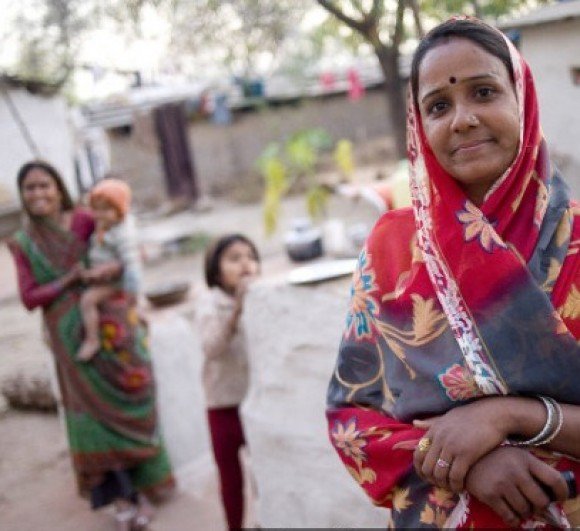Health
Poor pay, training impede India's health workers

Nearly a million workers -- forming the frontline of India's faltering public health system -- are inadequately trained and are underpaid, according to an IndiaSpend analysis of Health Ministry data, imperilling the country's healthcare efforts.
Accredited Social Health Activists (ASHAs) -- considered to be voluntary workers -- are paid a honorarium by the government and most make about a measly Rs 1,000 a month. ASHAs are required to undergo a 23-day training spread across 12 months, but a third of them in a block in north Bihar were not trained at induction, and the rest received seven days of training and learnt the rest by reading the manual, according to a 2015 study conducted in 187 villages.
An ASHA serves as a healthcare facilitator, and goes door to door visiting the poorest and most vulnerable sections of the society -- nearly 22 per cent or 269 million Indians still live under the poverty line. Her responsibilities are related to reproductive and child health, immunisation, family planning and community health. This includes home visits and counselling of pregnant women, helping with village health plans, providing medical care for minor ailments, such as diarrhoea, fever and first aid for minor injuries.
India accounted for close to a fifth of 303,000 maternal deaths and 26 per cent of the neonatal deaths globally. Only 62 per cent of children between the ages of 12 and 23 months were fully immunised -- for BCG, measles, and three doses each for polio and diphtheria and tetanus.
As many as 70-90 per cent ASHAs said they needed better training, monetary support and timely replenishment of the drug kit to perform better. ASHAs also said they received no assistance from the panchayat and limited support from auxiliary nurse midwives and anganwadi workers.
Only 22 per cent of the ASHAs surveyed had some understanding of their role, according to the 2015 study in north Bihar; most ASHAs were involved in maternal and child care but did not work in local health planning or other duties related to health activism.
An ASHA is between 25 and 45 years of age, educated up to Grade VIII or higher, and is currently married/divorced/widowed. Typically, one ASHA caters to a population of 1,000 people, but the average has since dropped to one ASHA per 910 population.
At least 65 per cent ASHAs were being consulted during illness of a sick child but their effectiveness was lower due to "lack of skills, supplies, or limited support", according to a 2015 report by the National ASHA Mentoring Group in 16 states.
For instance, ASHAs were able to supply oral rehydration solution from their kit in 27 per cent of diarrhoea cases in Bihar, 37 per cent in Jharkhand, 56 per cent in Rajasthan and 54 per cent in Assam.
ASHAs were found to be satisfactory in 52 per cent cases for temperature measurement, 61 per cent cases for handwashing (before handling patients), 43 per cent cases for weight measurement and 68 per cent cases for skin-to-skin care, according to this 2016 study published in Indian Pediatrics.
"The study demonstrates that the knowledge and skills of ASHAs regarding newborn care is sub-optimal," the authors said.
Sandhya Vaidya, 32, became an ASHA in 2010 in her village of Wansadi in Naxal-affected Korpana taluka in Chandrapur district, Maharashtra. The work was gratifying: Vaidya remembered saving a baby's life among her achievements. But the pay was paltry, she told IndiaSpend.
It took two full years before she received the drug kit she was supposed to carry around to the households, she added. The drug kit consisted medicines for simple ailments. While they were given training every year, Vaidya said, most times they were asked to read from the manual.
Before the launch of the 108 ambulance service that reaches a patient within 20 minutes in urban and 40 minutes in rural areas, Vaidya spent her own money to escort mothers to healthcare centres. "I have helped many women during their pregnancies with food, medicines and clothes for their kids for the first month."
In 2015, tired of the low pay, she applied and was selected for the position of police patil (constable). "I now make Rs 3,000 a month and there isn't much work. As an ASHA, I had to attend emergency calls at night, and do surveys for pulse polio and elephantiasis where I roamed the whole day to get just Rs 50," Vaidya said.
There have been frequent agitations by associations of ASHAs demanding minimum wages and asking to be made government employees.
There are 873,759 ASHAs working in rural India against the target of 952,533 (91.7 per cent), under the National Rural Health Mission.
High focus states, which have weak public health indicators and weak infrastructure -- Bihar, Chhattisgarh, Odisha, Jharkhand, Madhya Pradesh, Rajasthan, Uttar Pradesh and Uttarakhand -- had about 90 per cent of the targeted number of ASHAs. While the northeastern states had nearly 99 per cent of the targeted number, in states such as Uttar Pradesh, West Bengal, Karnataka and Kerala, the shortage was over 15 per cent.
ASHAs are also an integral part of the National Urban Health Mission launched in 2013 -- 42,769 ASHAs are active in urban areas against the target of 70,721 (60 per cent).
The programme to recruit more ASHAs is also stuck at inadequate training: The sluggish pace of training leads to attrition of knowledge and skills, and affects the state's readiness to register ASHAs for certification, according to this July 2016 update, the latest available, by the National Health Systems Resource Centre, a part of the ministry of health and family welfare.
"The stagnation in training at the ASHA levels implies lack of resources: both financial and human," the update said.



































